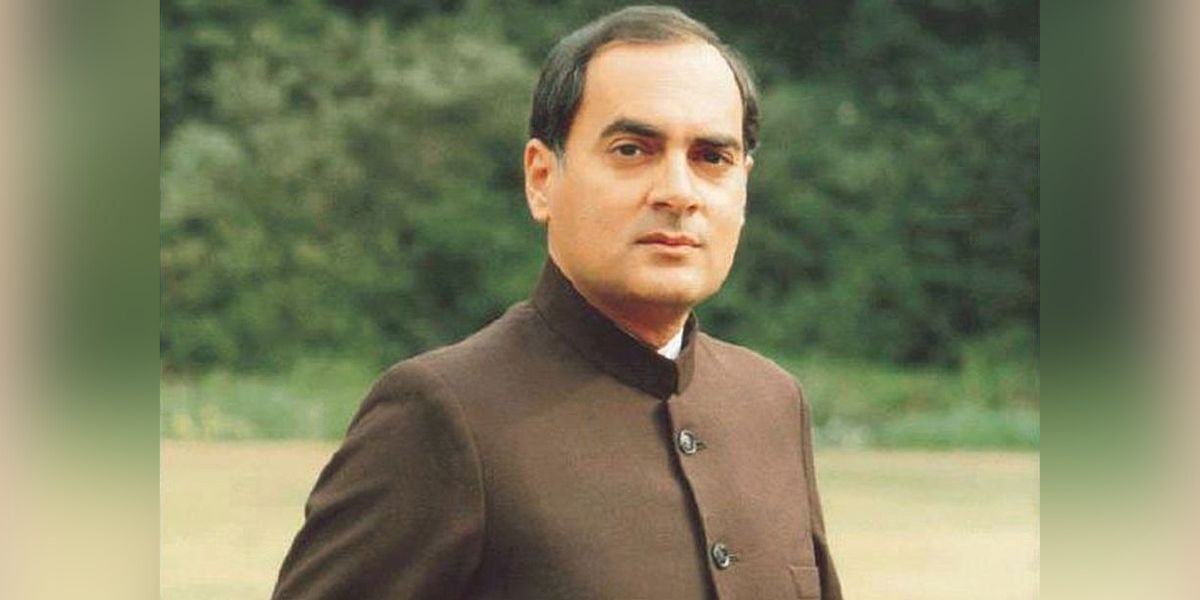Published Aug 20, 2025 | 9:00 AM ⚊ Updated Aug 20, 2025 | 9:00 AM

Rajiv Gandhi. (Congress)
Synopsis: Former prime minister Rajiv Gandhi aspired for government administration to be transparent and accessible to the people. He simplified the licensing regime and undertook economic reforms to attract foreign investments and industries to the country.
Rajiv Gandhi laid the foundations for India’s progress by initiating numerous reforms that propelled the nation onto a new path in the 21st century. With a visionary approach, he took bold steps across sectors such as Information Technology (IT), communications, research, economy, education, Panchayati Raj, administration, and elections, establishing himself as a farsighted leader who continues to inspire future generations.
The groundwork he laid back then is fueling the country’s development today. Assuming the responsibilities of prime minister at the young age of 40, he made decisions with a modern outlook and stood as a guiding light for the youth.
In realising Mahatma Gandhi’s dream of Gram Swaraj (village self-governance), Rajiv Gandhi strengthened the Panchayati Raj system. At a time when the Panchayati Raj institutions were weak, he transcended political boundaries by forming a parliamentary subcommittee under the leadership of PK Thungon to bolster them.
The committee recommended granting autonomy to Panchayati Raj bodies. In line with the committee’s suggestions and recommendations, the Rajiv Gandhi government introduced the 64th Constitutional Amendment Bill in 1989. Driven by the resolve to decentralise power from the grassroots level, the Rajiv Gandhi administration in 1989 enacted the 64th Constitutional Amendment to vest special powers in a three-tier system.
Although the bill received approval in the Lok Sabha, it lapsed in the Rajya Sabha; nevertheless, the seeds of reform in the Panchayati system were sown at that very moment. Subsequently, the PV Narasimha Rao government in 1993 provided constitutional status to Panchayats through the 73rd Constitutional Amendment. In the past, Congress governments had also ensured reservations for women, Scheduled Castes (SCs), Scheduled Tribes (STs), and Backward Classes (BCs) to enable them to contest in local body elections.
Following the same path, if the Revanth Reddy government in Telangana proposes 42 percent reservations for BCs in local body elections, the Union government refuses to approve the reservation bill or ordinance. In the past, the BRS reduced BC reservations in local elections from 34 percent to 23 percent, doing injustice to them, and now, instead of joining the Congress in fighting the centre, it enters into a covert agreement with the BJP.
Rajiv Gandhi aspired for government administration to be transparent and accessible to the people. He simplified the licensing regime and undertook economic reforms to attract foreign investments and industries to the country.
With the vision of having a dedicated system for human resource development in the nation, Rajiv Gandhi established the Ministry of Human Resources in 1985 and entrusted its responsibilities to PV Narasimha Rao. In foreign policy, Rajiv Gandhi prioritised the country’s interests, maintaining cordial relations with both the United States and the Soviet Union simultaneously, while playing a pivotal role in the establishment of SAARC in 1985.
Through his efforts to steer the nation on a new path capable of competing with the world, we stand today shoulder-to-shoulder with leading nations. Under Rajiv Gandhi’s leadership, the Congress achieved a record 414 seats in the 1984 Lok Sabha elections — a milestone that remains unbroken to this day.
If the country is surging ahead in the artificial intelligence (AI) sector today, it is because Rajiv Gandhi placed great emphasis on the technology sector back then. He made revolutionary decisions in IT and telecom, ushering in the era of computer systems.
Despite labour unions protesting against the introduction of computers in government administration and public sector operations, fearing job losses, Rajiv Gandhi did not step back.
By strengthening the Centre for Development of Telematics (C-DOT) in 1984, Rajiv Gandhi brought unimaginable changes to the telephone sector. With encouragement provided to companies like Infosys, Wipro, and TCS, the IT sector flourished nationwide. Reforms were not limited to IT; he also initiated changes in education.
In 1985, he launched the Indira Gandhi National Open University (IGNOU). In 1986, Rajiv Gandhi established Jawahar Navodaya Vidyalayas, bringing quality education within reach of all sections of society.
To increase youth participation in politics, he reduced the minimum voting age from 21 to 18 years through the 61st Constitutional Amendment. In the 1991 parliamentary elections, he allocated 40 percent of the tickets to the youth, proving his commitment to youth politics. Through the 52nd Constitutional Amendment Act, he also strengthened the anti-defection law.
Rahul Gandhi, the son of the late Rajiv Gandhi, is treading the same path. As the Leader of the Opposition in the Lok Sabha, he is questioning the authoritarian tendencies of the Modi government on behalf of the people. Under Rahul Gandhi’s leadership, the INDIA bloc is agitating against the electoral system that has been corrupted in the country.
Rajiv Gandhi conducted himself beyond the realm of politics. He provided financial assistance to BJP senior leader and former prime minister Vajpayee, who was suffering from kidney issues — a fact that Vajpayee himself revealed. In 1988, at the United Nations General Assembly, Rajiv Gandhi advocated for peace by opposing the production of nuclear bombs.
Tragically, in 1991, during an election campaign in Sriperumbudur, Tamil Nadu, he was assassinated in a suicide bombing by the Liberation Tigers of Tamil Eelam (LTTE).
The Rajiv Gandhi family is synonymous with peace. Sonia Gandhi granted clemency to the perpetrators of the bombing. The date of his assassination, 21 May, is observed in India as Anti-Terrorism Day.
Posthumously, Rajiv Gandhi was awarded the Bharat Ratna. As a visionary who initiated reforms with profound insight, Rajiv Gandhi will eternally reside in the hearts of the nation’s people.
(The writer is an MLC and President, TPCC. Views are personal. Edited by Muhammed Fazil.)

